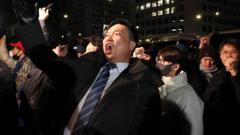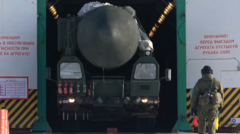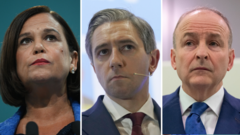South Korean President Yoon Suk Yeol’s dramatic attempt to impose martial law was swiftly overturned after causing significant political turmoil and public protest. In an unexpected late-night television address, Yoon announced military rule, claiming it was necessary to protect the country from “North Korea’s communist forces” and “eliminate anti-state elements.”
The announcement immediately sparked widespread chaos in Seoul, with thousands of protesters gathering outside the National Assembly. Lawmakers, some even scaling the parliament’s perimeter walls, defied police lines to convene and vote down the martial law order. Despite this, the military initially stated it would remain deployed until personally revoked by the president.
In a sudden reversal around 4:30 am, Yoon withdrew the martial law, accepting the National Assembly’s demand. Protesters, who had braved freezing temperatures, erupted in celebration, shouting “We won!” This marked a significant moment, as martial law had not been imposed in South Korea since the country’s return to democracy in 1987, with the last instance occurring in 1979 following a military ruler’s assassination.
The incident highlighted the severe political challenges facing Yoon’s government. Since April, when the opposition won a landslide general election victory, Yoon’s administration has been significantly weakened. The president has also been embroiled in multiple corruption scandals, including controversies involving the First Lady accepting a Dior bag and allegations of stock manipulation.
The opposition has been actively undermining Yoon’s government by proposing budget cuts, moving to impeach cabinet members and prosecutors, and challenging the government’s agenda. When announcing martial law, Yoon initially blamed North Korea but subsequently accused the opposition of deliberately paralyzing his government’s operations.
The international community quickly responded to the developing situation. The US State Department emphasized its “iron-clad” alliance with South Korea while expressing “grave concern” and closely monitoring developments. The UK government similarly stated it was monitoring the situation closely.
Ultimately, Yoon’s attempt to impose martial law backfired, demonstrating the strength of South Korea’s democratic institutions and the public’s commitment to democratic principles. The swift reversal of the martial law order underscored the significant political pressure the president faces and the limitations of his executive power.
The incident serves as a dramatic illustration of the current political tensions in South Korea, reflecting the ongoing power struggle between the president and the opposition, and highlighting the robust democratic mechanisms that prevent unilateral attempts to circumvent established governmental processes.




